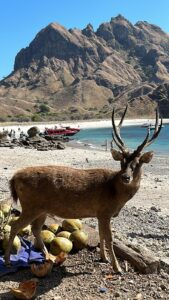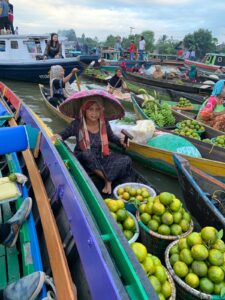Indonesia
Flores, Eastern Indonesia
Building from surveys, interviews, and observations (time allocation methods, anthropometrics), I have examined adaptation processes across coastal households in Ende, Flores, Indonesia, since 2009. Endenese constitute a population of close to 80,000 individuals as of 2020. Located within the province of Nusa Tenggara Timur, the area is one of the poorest in Indonesia, with reported weekly incomes oscillating between $15 and $75. Over the past decades, the region has seen dramatic climatic change, with increasingly more extended drought periods and condensed rainy seasons. As my research shows, fishermen have responded by diversifying fishing activities into different effort profiles (Ramenzoni 2013a; 2015). While they recognize the high level of uncertainty in fishing returns–they often mentioned the lack of precision of older forecasting methods—fishermen can only cope with the unpredictability of conditions by increasing their time spent at sea. Thus, many fishermen continue operating during the full moon, which goes against long-standing traditions. Most significantly, they may venture at sea under the dangerous conditions of the wet monsoon, which pose essential risks to life and property.
In addition to environmental fluctuations, through archival research and interviews, I was able to document overfishing among key capture species such as red snapper and big tunas (Ramenzoni 2013; 2017). This has resulted in changes in dietary habits (Ramenzoni 2023), with local households preceding the consumption of high-valued fish for economic revenue. Paradoxically, in one of the most bountiful regions of tuna, local fishing households consume fewer species. Dietary and nutritional research has also shown that Endenese adults can buffer seasonal variations in food availability, with scarce changes in body mass indices (Ramenzoni forthcoming). I intend to continue my work in this location over the next few years. I plan to repeat anthropometric and dietary surveys that I carried out in 2011/2012, along with other surveys measuring climate change perception, to develop a panel dataset to explore the mid-term/decadal impacts of environmental and socioeconomic uncertainty among households.
Kalimantan, Central Indonesia
Over the past five years, I have begun to explore issues associated with household dietary health, physical activity levels, and livelihood diversification in Mantangai, Kalimantan, Central Indonesia. To assess how peatland degradation, mining, and forest fires affect fishing households, I have conducted research in villages near Tuanan, Rutgers Orangutan Research Station. Like my work in Flores and Central Cuba, the project seeks to assess the impacts of socioeconomic and environmental uncertainty on dietary health and physical activity levels, evaluate livelihood changes, and identify household strategies to cope with these challenges. As a secondary goal that concerns my third line of research and relies on pre-tested structured surveys implemented elsewhere (Ende and Central Cuba), I aim to develop a socioeconomic impact assessment tool that can operationalize adaptation and quantify adaptive capacity among subsistence fisheries.

